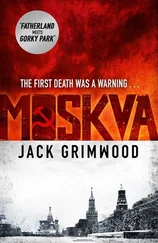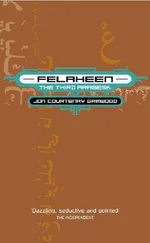Tewfik Pasha sighed. “Your witness,” he said to Raf.
A hundred tiny pinhead lenses were set into the walls of the ballroom, Raf realized that well enough, but he turned to a wall-mounted CCTV camera to let the judges know he spoke direct to Colonel Abad.
“You recognize this man?” Raf asked, jerking his head towards Hamzah.
“I recognize his voice,” said the box, “once suitable allowances have been made for vocal developments. And it doesn’t matter if I say I recognize him or not. Protein pattern matching has already confirmed his identity.”
“Did he ever tell you his age?”
Colonel Abad stayed silent.
“You don’t know how old he was at the time of the massacre?”
“Massacre . . .” The word was said thoughtfully, though whether that was because Abad was thinking or because elegant programming had anchored emotions to set logic sequences was impossible to tell.
“One hundred and fifty-three people died that afternoon,” said the Colonel. “Two weeks before, according to UN reports, 1,002 refugees were reclassified as collateral damage when a poorly targeted skySucker destroyed the oxygen over their camp. Seven days after, 503 died outside Wadi Halfa in a firefight between the Ragged Army and the Children of God. I note that neither of these incidents is down on record as a massacre . . .
“So your logic suggests,” continued the machine, “that when 503 children kill each other it’s not a massacre, but when one child kills 153, then it is. Have I got that right?”
“Answer the original question,” said Raf. “Did he ever tell you his age?”
“Very few of them knew their age,” Abad said mildly. “And it’s unlikely that Ka was any different. But you could always try working it out. For example, your reports say Ka told the Red Cross he came from Azarat and his mother died when he was a baby . . .”
Raf waited.
“Didn’t it occur to anyone to ask him from what?”
Glancing at Hamzah, Raf raised his eyebrows.
“Plague,” Hamzah said. “That’s all I was told. After the wells dried up and the crops died, she and my uncle walked north to Suakin and joined a caravan to El Makrif to get away from war.” Hamzah shrugged. “So did everybody else.”
“Drought,” said Abad. “War, plague and a migration of refugees . . . There were droughts in 89, 91, and 01. Beni–Amir conflicts from 87 to 91 and 98 to 03. Ebola in 91, 93 and 99 to 02.” The Colonel reeled off the figures, as if talking to itself. “Migrations from 87 to 92, after which the UN closed the routes to stop refugees creating new vectors for the plague.”
“Which means,” Raf and Senator Liz said together, “he was born in 91.” They’d been following the figures in their heads. The Graf was still busy writing out his sums longhand and St. Cloud was doodling.
“Assume he was born in the spring,” said Raf. “How old was he?”
“Nine on joining and eleven at the time of the massacre .”
Raf turned to where the SS Jannah ’s medical officer sat near the front. “Would you agree with that assessment?”
“It is perfectly possible,” Dr. Schultz said slowly.
“Thank you.” Raf nodded to the bench. “That finishes the case for the prosecution.” He glanced over at Zara. “I imagine Miss Zara is impatient to make the case for the defence.”
St. Cloud snorted.
“With the magister ’s permission, this court will recess for ten minutes,” he announced, banging his gavel on its wooden pad . . .
After that, the rest was a formality. The judges decided two to one that there was no case to answer, with the dissenting vote being St. Cloud. Ernst von Bismarck went out of his way to stress that Hamzah was completely exonerated. Just to make doubly sure, he explained, to the amusement of the more upscale newsfeeds, that this didn’t mean Hamzah had been found not guilty. For the simple reason that Hamzah didn’t need to be found not guilty. There was no case to answer.
In the seventy-five seconds it took Claire duBois’s talking head to hit Television 5, Hamzah mutated from a heavily armed teen psychopath to traumatized drought victim, stranded alone in the desert, trying desperately to carry out conflicting orders.
“If you don’t move,” said the fox, “you’ll be late for Hamzah’s party.”
“Yep,” agreed Raf and reached for his cappuccino.
The power was back on at Le Trianon and the first thing the kitchens had done was whip up a fresh batch of ice cream for Hani, the kind made with vanilla pods. A glass flute of the stuff now sat, almost untouched, in front of her.
“Not hungry?”
Hani shrugged. A minute or so later, while Raf pretended not to watch, she stirred the ice cream to a pulp with her long silver spoon.
“You going to let her get away with that?” asked the voice.
“Probably.”
“You’re talking to the fox,” said Hani.
Raf nodded.
“The one hidden in your head?”
He nodded again.
“Okay.” The small girl put down her spoon, then picked it up again. Le Trianon was absolutely her favourite café and vanilla supposedly her favourite flavour, but Hani obviously wasn’t enjoying herself.
“Colonel Abad mended your fox?”
They’d been over this a dozen times. Raf couldn’t bring himself to believe this was the real problem, but it was the point to which she kept coming back.
“That’s right,” he said.
“How?”
“He took a look inside my head, then fixed a software glitch that stopped the fox from being able to feed.”
“Did it hurt?”
“Too fast,” said Raf. “I didn’t even know it had happened.”
“And Colonel Abad doesn’t really exist?”
“He’s as real as the fox.”
Hani looked doubtful. “How real is that?”
As questions went, this one was more difficult to answer. Actually, as questions went, that one was next to impossible . . . A software program designed to mimic the cunning and charisma of a long-dead revolutionary undoubtedly existed. It had led the Ragged Army, changed sides, then changed back again. Several times, from what it said.
The view of the Washington Post was that it was equal in intelligence to any human and therefore as dangerous. Le Matin disagreed, describing it as a military chess computer, a view also held by Pravda.
“I think it exists,” Raf said carefully.
“But you think the fox exists,” said Hani, brushing crossly at her fringe.
They were seated at a pavement table, even though the weather was cold and the first Saturday in November had brought fewer people than normal out onto the streets. And she’d brought him there because he knew she liked it, if that made sense.
“Zara’s mother says that you’re insane.” Hani’s voice was matter-of-fact, although Raf caught the sideways glance that checked he wasn’t angry. Only he was angry and had been since the trial was aborted five days before.
And in a way he was jealous. Raf sat back in his chair and closed his eyes. He was jealous of Avatar, for retrieving the Colonel. And furious with Zara, who’d known at least some of what Hani was doing.
“Uncle Raf . . .”
Raf opened his eyes.
“I’m sorry. All right . . .” Hani picked up her spoon and ate a mouthful of runny vanilla, as if that might make a difference. “I should have told you.”
“Yeah, you really . . .” Raf swallowed the rest of his words. “Forget it,” he said, turning to more important matters. “You don’t like vanilla ice cream anymore, do you?”
“It’s okay.” Hani shrugged.
“What happened?”
Читать дальше












